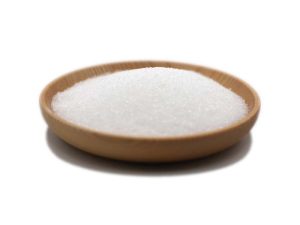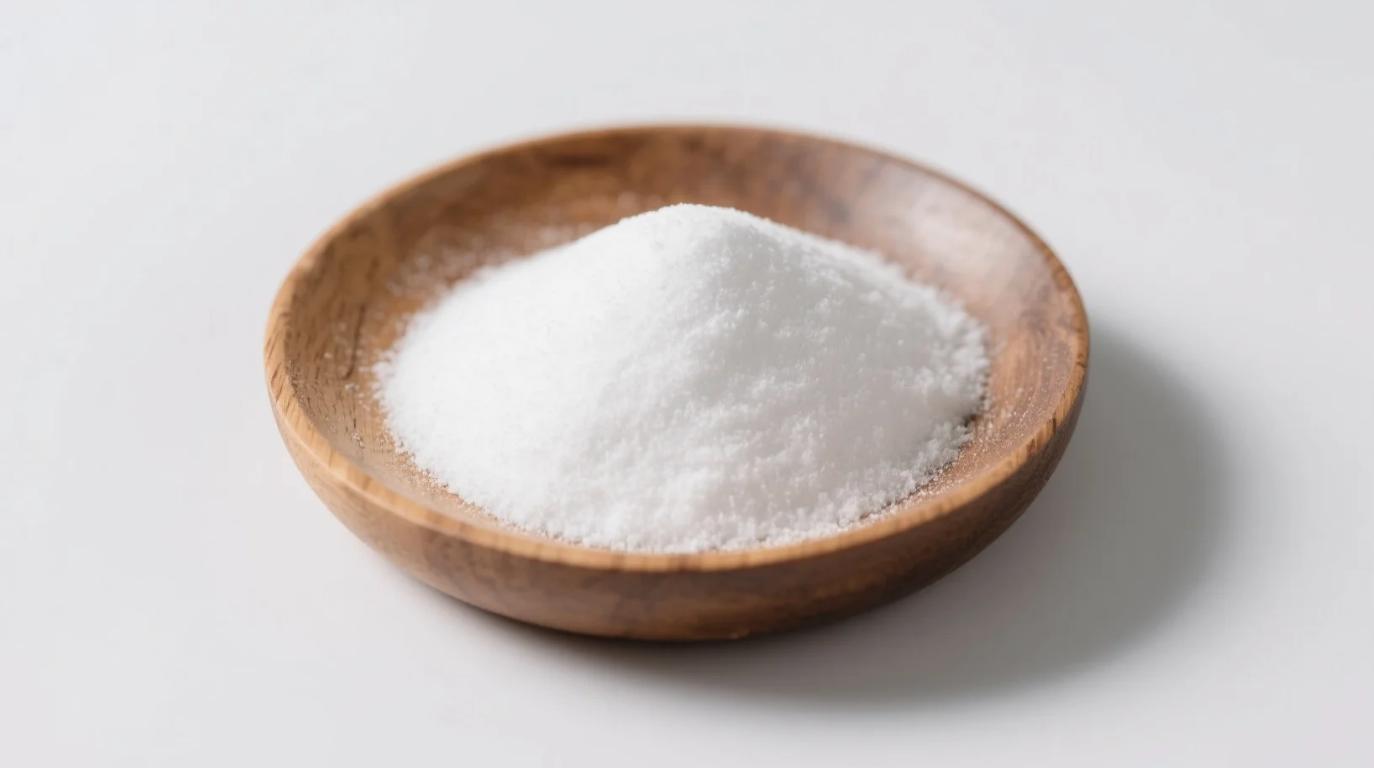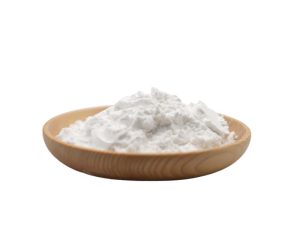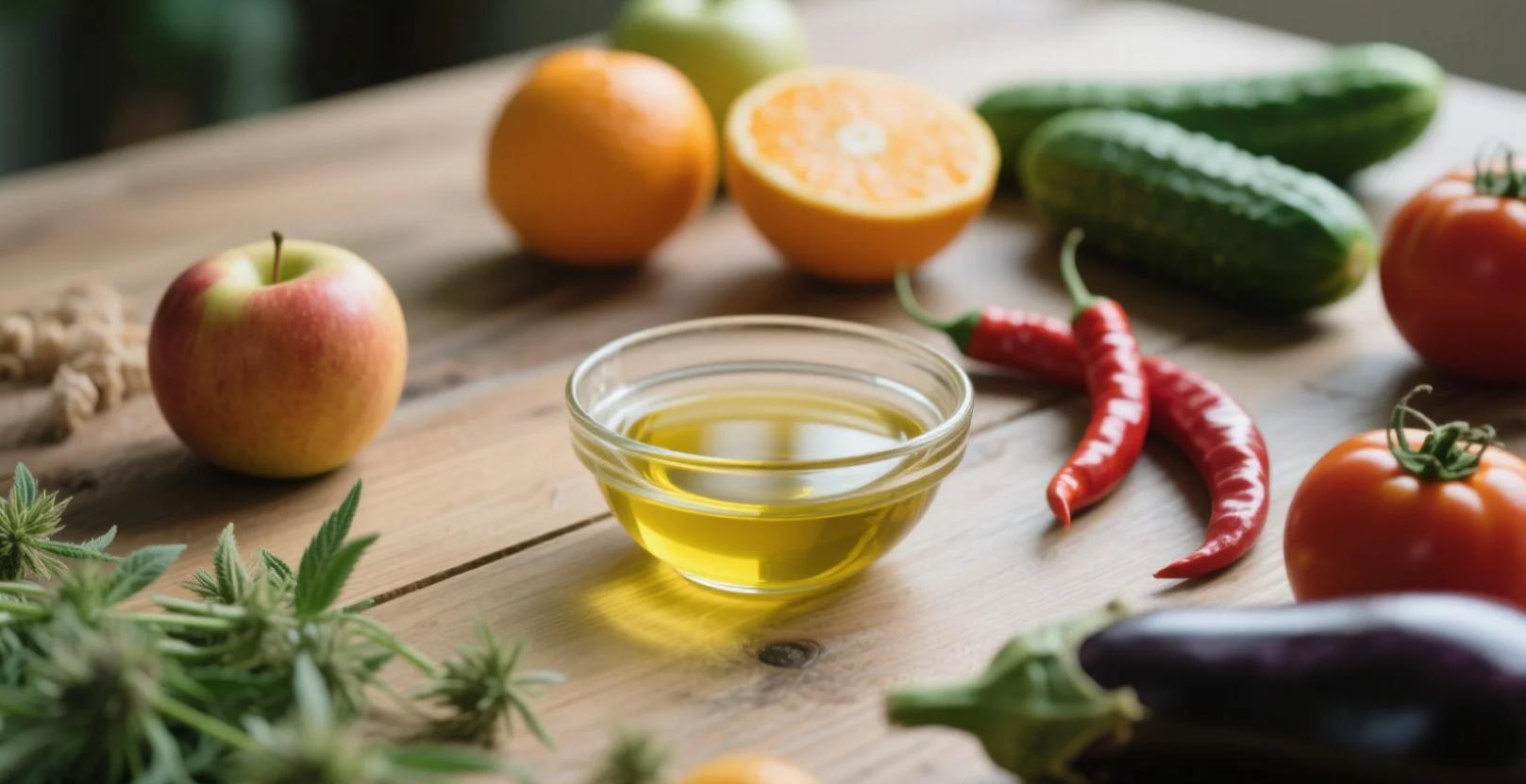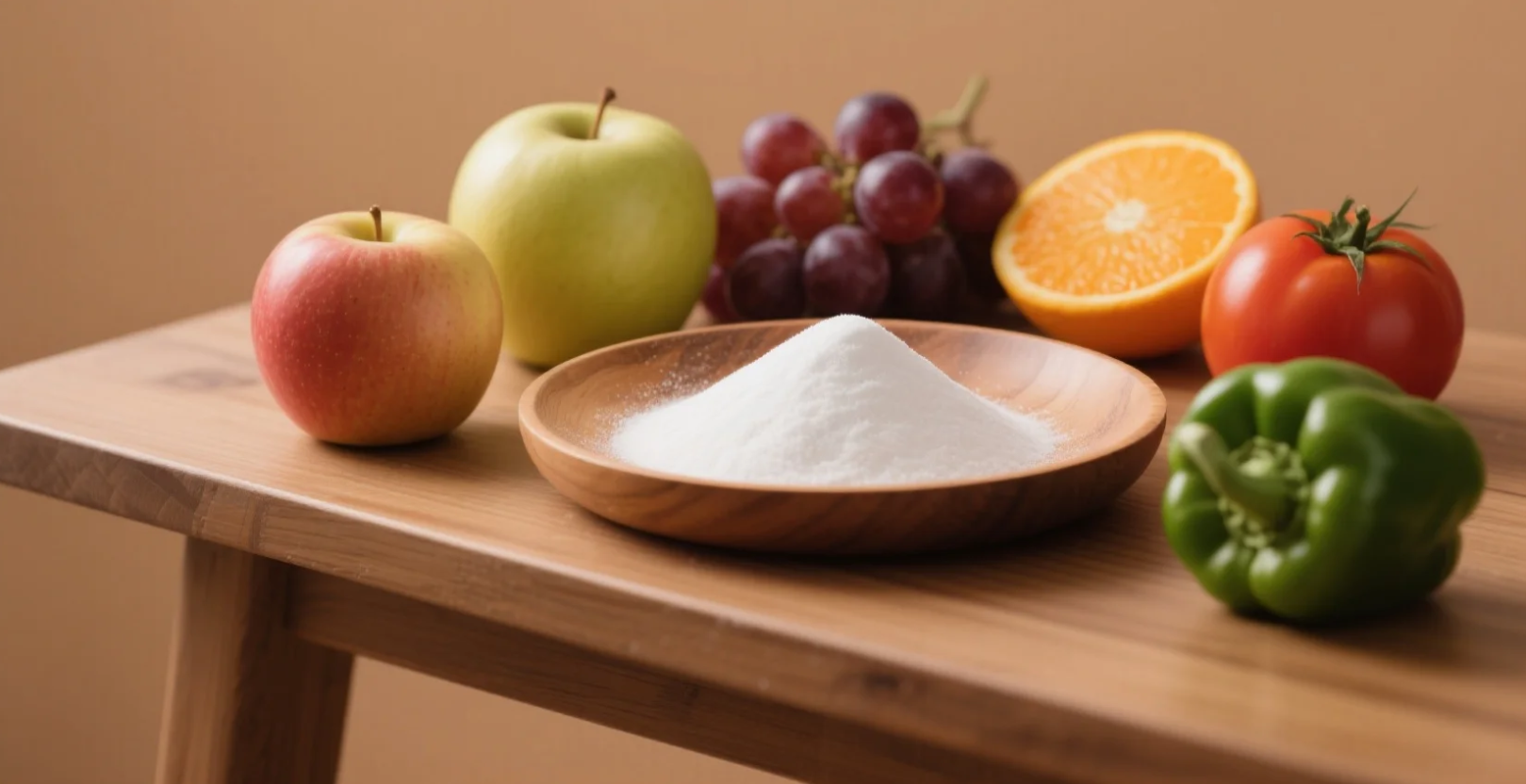Table of Contents
Dextrose and erythritol often sit side-by-side in health stores—both white powders, both sweet—but chemically and biologically, they’re polar opposites. Let’s expose why confusing them could sabotage your metabolic goals.
Core Chemistry Clash
| Property | Organic Dextrose Powder | Erythritol |
|---|---|---|
| Chemical Identity | Glucose (simple sugar) | Sugar alcohol (polyol) |
| Source | Fermented cornstarch / tapioca | Fermented non-GMO corn |
| Glycemic Index (GI) | 100 (identical to table sugar!) | 0-1 (zero blood sugar impact) |
| Calories | 4 kcal/g → full energy charge | 0.24 kcal/g → ~94% excreted |
| Sweetness | 75% as sweet as sugar | 70% sweetness |
| Aftertaste | Clean, neutral | Cooling mint effect |
Science Note: Dextrose = glucose = blood sugar. Erythritol = molecule too small for digestion.
Metabolic Showdown: How Your Body Processes Them
Dextrose Pathway
- Enters bloodstream in 5 minutes → insulin spike
- Fuels muscles/brain or → stored as glycogen/fat
- Triggers glycation (AGEs formation → aging/inflammation)
Erythritol Pathway
- 90% absorbed in small intestine → no fermentation
- Excreted unchanged in urine within 24 hours
- Zero impact on blood glucose/insulin (FDA GRAS Notice 789)
Who Should Use Which?
| Goal | Dextrose Wins | Erythritol Wins |
|---|---|---|
| Athletic Recovery | Refuels glycogen 50% faster than sucrose | ❌ Not for energy replenishment |
| Diabetes Management | ❌ Hazardous for blood sugar | Safe sweetener |
| Keto Diets | ❌ Kicks out of ketosis | Preferred sugar replacer |
| Gut Health | ❌ Feeds pathogenic bacteria | No fermentation → zero gas |
| Dental Safety | ❌ Cavity-causing | Tooth-friendly |
Organic Certification: Why It Matters Here
| Conventional Risk | Organic Solution |
|---|---|
| GMO corn pesticides (glyphosate) | Non-GMO, ND residues |
| Bleaching agents (sulfites) | Natural enzymatic purification |
| Heavy metals in processing | Third-party heavy metal testing |
Crucial: Organic ≠ low-glycemic. Organic dextrose still spikes blood sugar.
Red-Flag Groups
Avoid Dextrose If You:
- Have insulin resistance/diabetes
- Follow keto/low-carb diets
- Combat candida overgrowth
- Prioritize anti-aging (glycation risk)
Avoid Erythritol If You:
- Suffer hydrogen-dominant SIBO (causes diarrhea)
- Have dog/cat pets (xylitol confusion risk)
- Experience cooling sensation aversion
Real-World Use Cases
Dextrose’s Niche
- Medical Hypoglycemia Rescue: 15g dissolves under tongue → blood sugar boost in 3 mins
- Homebrewing: Ferments cleaner than sucrose → smoother alcohol
- Glaze/Texture Fix: Prevents ice crystals in ice cream
Erythritol’s Sweet Spot
- Diabetic Desserts: Bake cookies without spiking glucose
- Toothpaste Bases: Sweetens without feeding oral bacteria
- Stable Powder Blends: Won’t clump like stevia
The “Zero Sugar” Deception
- Dextrose is PURE SUGAR → legally labeled as “dextrose” or “glucose,” but still added sugar.
- Erythritol = non-sugar → labeled “sugar alcohol,” exempt from “added sugars” line.
Bottom Line
Dextrose is glucose—quick fuel for emergencies or athletes, but metabolically identical to sugar. Erythritol is a non-caloric, non-glycemic sweetener—ideal for diabetics and keto, but not for energy replenishment.
Matching Rule:
- Need energy/carbs? → Organic dextrose powder/syrup
- Want sweetness without carbs? → Erythritol
Never substitute one for the other in recipes—dextrose adds bulk/energy; erythritol adds sweetness sans calories.
Sources: WHO Glycemic Index Database, Journal of Nutrition (erythritol studies)
Contraindications: Diabetics must monitor dextrose use; erythritol may worsen IBS-D symptoms at >35g. Consult your doctor before switching sweeteners.
Related Products
Organic Erythritol
Appearance: White Crystalline Powder Or Particles Other Name: Erythritol sweetener, Erythritol sugar,…
Organic Dextrose Powder
A simple, naturally derived sugar from organic corn starch, offering clean sweetness,…
Organic Cornstarch Powder
A premium, non-GMO, and gluten-free thickening agent. It provides superior texture and…
